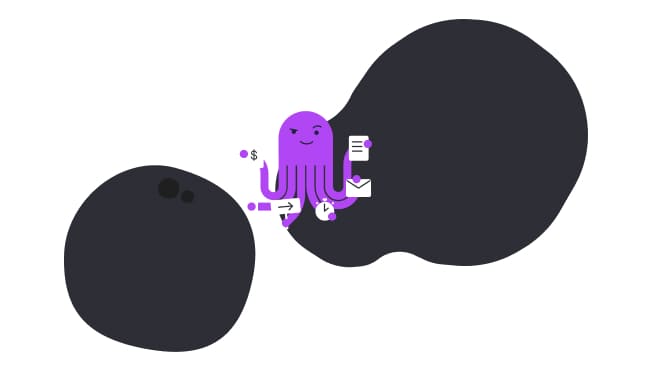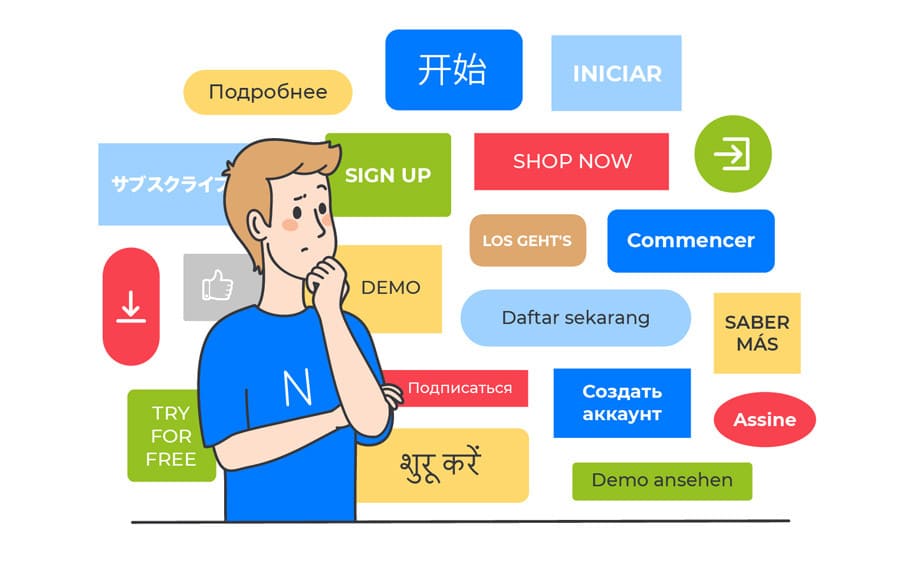The second edition of LocFromHome wrapped up yesterday after a 12 hour marathon of free online education, presentations and panel discussions from experts in the localization and language industry. Alconost took part in the segment that helps translators understand the importance of writing, how to transition into writing and ways to find ideas.
The live event can now be viewed on the Smartcat YouTube channel. In general, the conference focused on client management, quality assurance, tools and software, selling techniques, AI and machine learning, continuous translation and the situation as a whole in the localization industry we're facing today.
Alconost in particular took a philanthropic route and focused on helping translators who are looking to improve their writing skills. Ultimately, writing plays a huge role in translation, seeing as the latter is in essence a type of content. Translators who can elegantly write and convey messages in their target language create much more appealing translations that capture the attention of their audiences. See our segment of the conference in the view below:
In the video, you can see the Alconost representative and content strategist, Loie Favre on the bottom right.
Writing tips for translators and content creators in general
Here are some tips for translators who want to go into writing or who want to improve their skills. We discussed these points in the panel and wanted to also share them here as well.
Write what you know
You may not consider yourself an expert but your experiences and thoughts are worthwhile and can be of great value to not only your readers but to a great deal of companies who are looking to tackle the same topics. With this said, write what you know, what you've lived and experienced - there are a lot of people in the same boat who could profit. Think of some great solutions to problems you were able to come up with and create valuable content around it. Some may say, "I don't know what to write about" or "I don't know where to start", but simply looking at what you've done is a great start.
Use readily available data
Use software, websites and programs to help you with idea creation. Use data that is available online as much as you can. Some helpful platforms are:
-
Buzzsumo
-
Google Adwords for keyword research
-
SEMRush or other types of SEO platforms
-
Google Search queries found when you search a word (middle and bottom of the page)
Look to the community
For inspiration, find out what common problems translators or people in your niche are facing, and write about their solutions.
-
Facebook and LinkedIn Groups
-
Quora is a treasure trove of content ideas
-
Comments under articles that already exist
Make a plan and act on it
Always think about who you will be writing for, write out your target audience, what their problems might be? Set your content goals, whether it is to grow brand awareness, drive more signups, improve conversions, boost user engagement etc. Make an article structure and stick to it.
Look to storytelling to create compelling content
Avoid stiff, overly academic content and look to write content that is conversational and personable. This will drive more engagement and keep your audiences interested.
Consider writing about technology
These types of content are few and far between oddly enough. But, a lot of time people run into trouble and waste precious time trying to troubleshoot. So, if you are a translator for example, and you have some good hacks when it comes to your translation software for example, write about that and you'll get a great response.
Draw inspiration from others
You don’t have to re-invent the wheel. In fact, you may have a topic that’s already online, but by giving it your own perspective and angle, based on your own experience and research, it can become original content again.
Do multilingual research - your leg-up as a translator
For translators, you have the advantage of being able to do research in more than one language, two or more for some. Do local research to find new topic ideas. By doing so, you'll have an added angle that monolingual writers would not have thought of.
How to get over writer's block
1. Medium is full of articles on how to write, beat writer's block etc. There you can also find the Blog by Alconost that has a lot of cool tips for companies and translators.
2. Just start; not all of your writing has to be perfect, but it’s important to keep going. Writing like anything takes practice. So stop being a perfectionist for a while. I also believe that translators should practice writing, because often if you are not a good writer, it will show in your translations.
Where to get jobs and clients
A lot of the jobs people get are through previous connections: my first tip is never burn bridges and keep a list of contacts that you can reach out to.
In addition, always make it known far and wide about your pursuit. Open yourself up to the universe as they say. Because often you don’t know who will need your services, so creating PR for yourself is important.
Being personable also goes a long way. Formal emails won't always do. Friendly, more conversational approaches can be more effective.
If you are writing to agencies, always focus on what you can bring to the client and not simply on what you have done in the past. Show how your specialization can help them and what goals they could achieve by hiring you. Try to find the most concise way to describe yourself with the most important information, but then dive in pretty much right away into what you’d be contributing.
Next steps
We're greatly looking forward to future discussions with localization industry experts and hope that you found our tips useful in this instance. Feel free to check out other great articles in our blog that aim to educate and inform translation managers, product owners and business owners alike.
Do you have any writing tips to share? Write them in the comment section below.








